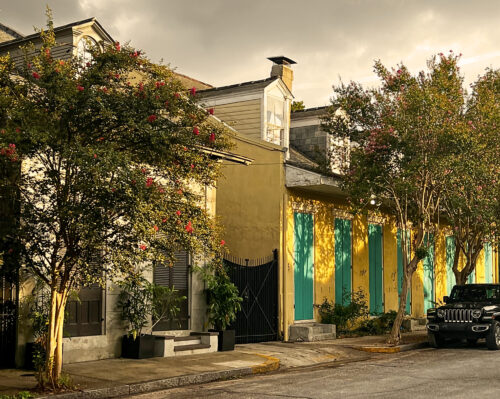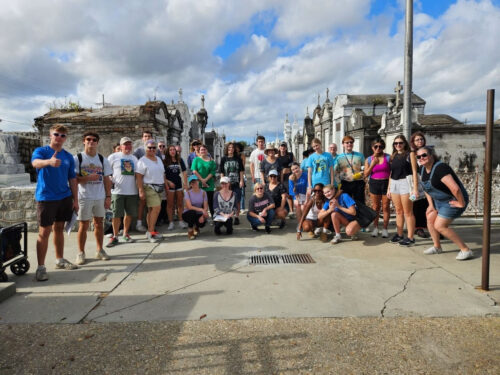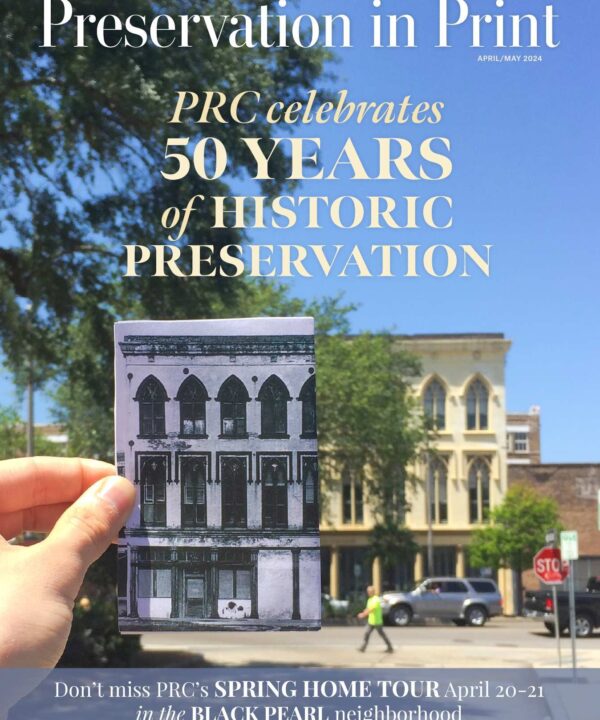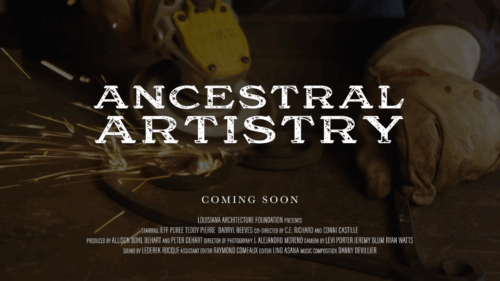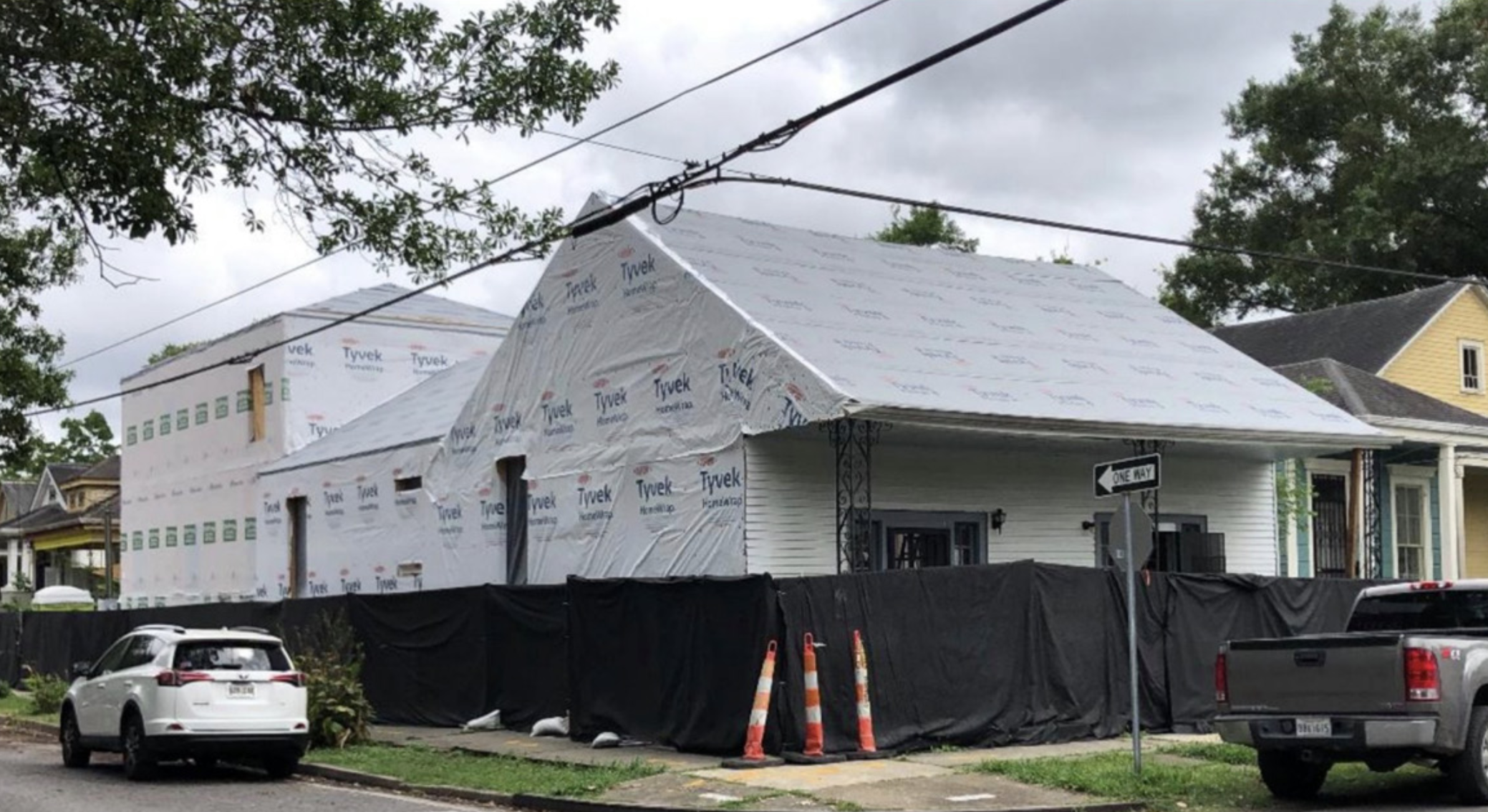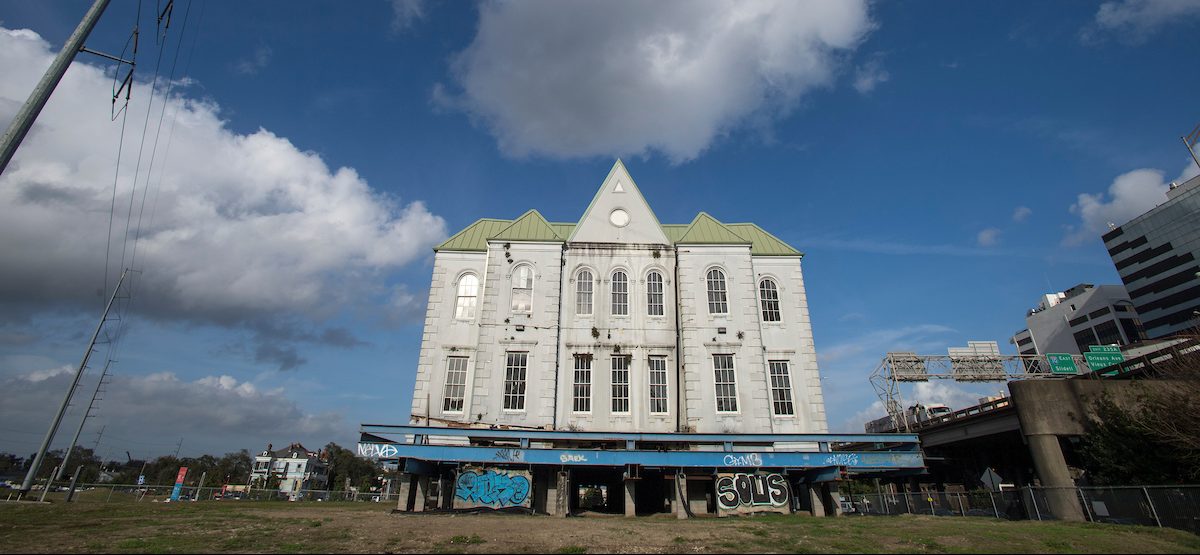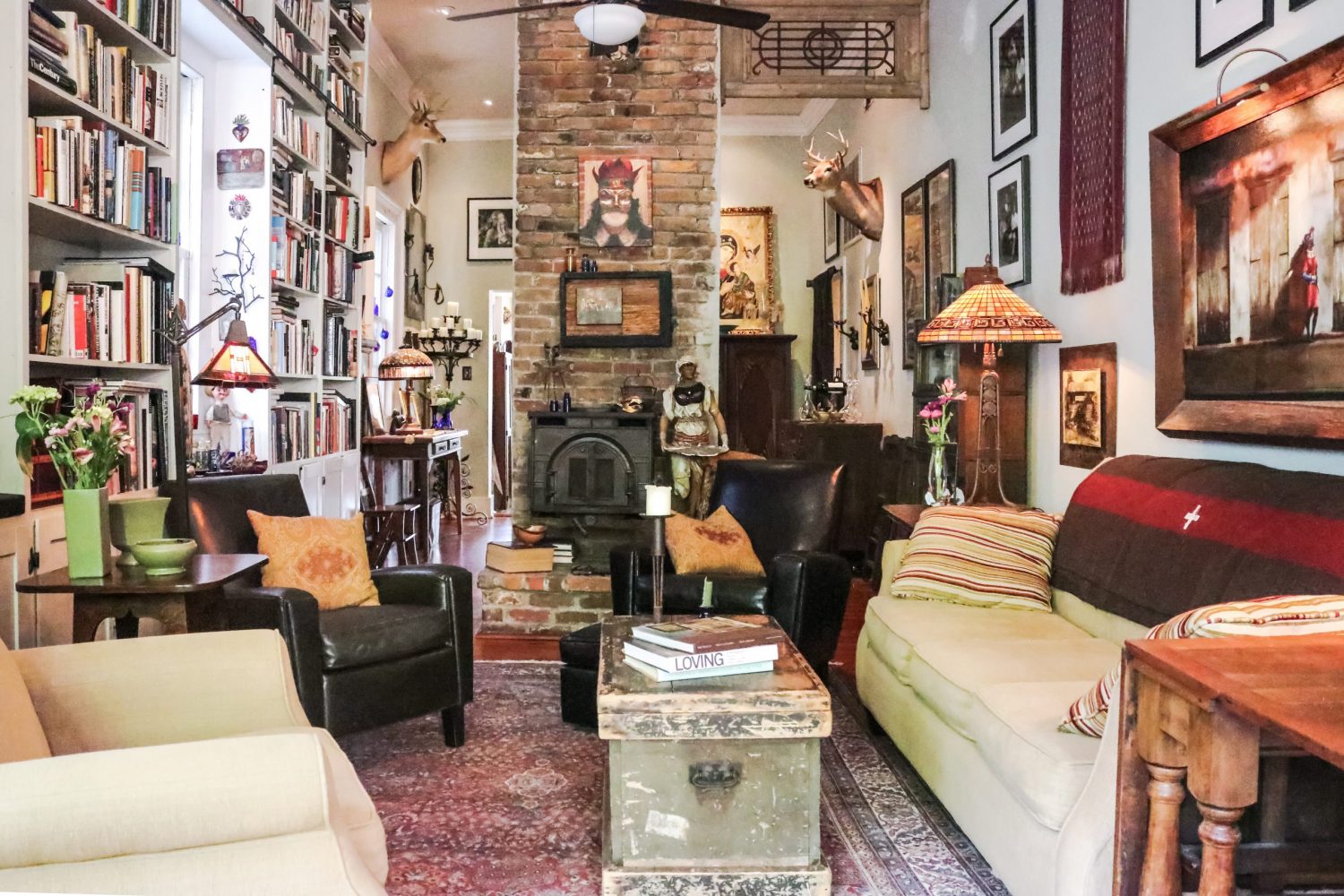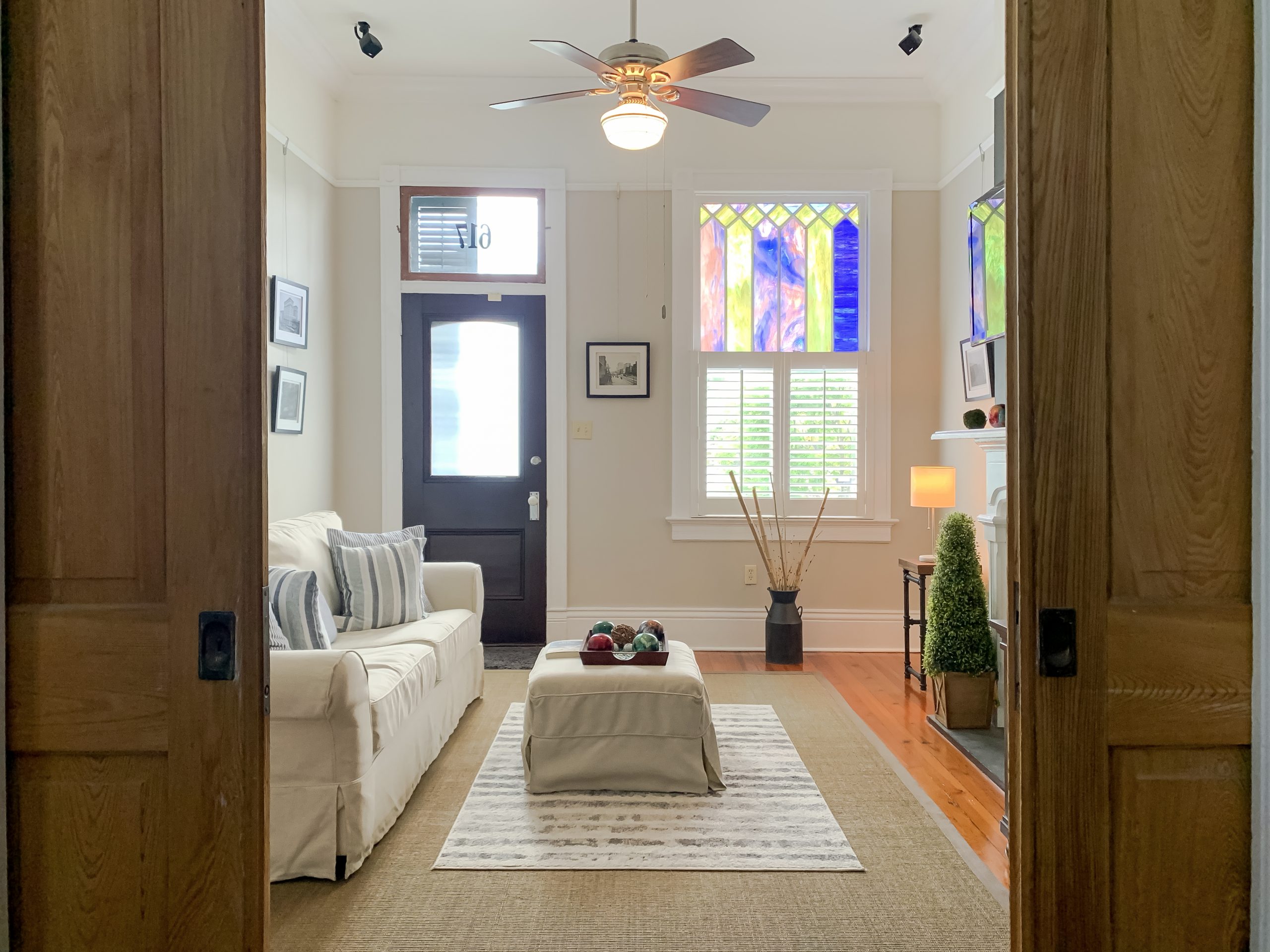This news brief appeared in the June issue of PRC’s Preservation in Print magazine. Interested in getting more preservation stories like this delivered to your door nine times a year? Become a member of the PRC for a subscription!
Photo courtesy of the ‘Stop Doubles to Dorms’ Facebook page
Efforts to stop the conversion of “doubles to dorms” in the Carrollton area are being fought on both the state and city levels, as the issue continues to be a concern for many residents who live in neighborhoods near Tulane and Loyola universities. As of press time for this magazine, the understaffed New Orleans City Planning Commission had twice deferred action on a City Council motion to amend the city’s Comprehensive Zoning Ordinance to establish the University Area Off-Street Parking Overlay.
The motion, which requires staff evaluation and a recommendation from the commissioners before it can be made law by the City Council, would make permanent an interim rule requiring the addition of one new parking space for each new bedroom in the neighborhoods surrounding Tulane and Loyola. Primary residences with a homestead exemption are not subject to the requirement, which is aimed at slowing the conversion of “doubles to dorms.”
Often referred to simply as D2Ds by Carrollton residents, these projects involve substantial and often insensitive additions to historic homes, which are then marketed exclusively to college students. It’s a highly profitable enterprise that, like short-term rentals, is credited with displacing long-term residents.
While students have lived off-campus in the area for years, what’s new is the trend of altering houses for that market. The result is often a purpose-built structure with so many bedrooms as to be unsuitable or unaffordable for a typical family. State Rep. Amiee Freeman, who resides in the area, has introduced legislation, HB 372, that would allow the City of New Orleans to double fines for property owners who willfully violate building permits up to $1,000 per day. She told a House committee that higher fines are needed to deter bad actors from overreaching their demolition and construction permits in order to cash in on the lucrative trend. If the bill passes, the city will need to develop policies that implement it as intended, and Freeman explained she is working with District A City Councilmember Joseph Giarruso to that end.
Like much of Uptown and Mid-City, the Carrollton neighborhood was made a local historic district in 2017. However, most of the area is a partial-control district where the Historic District Landmarks Commission has limited jurisdiction. The Preservation Resource Center recently coordinated with the staffs of the City Council and HDLC to amend the applicable definition of demolition in order to ensure that developers do not side-step that process. Heightened design review, however, would require additional future action by the City Council.

